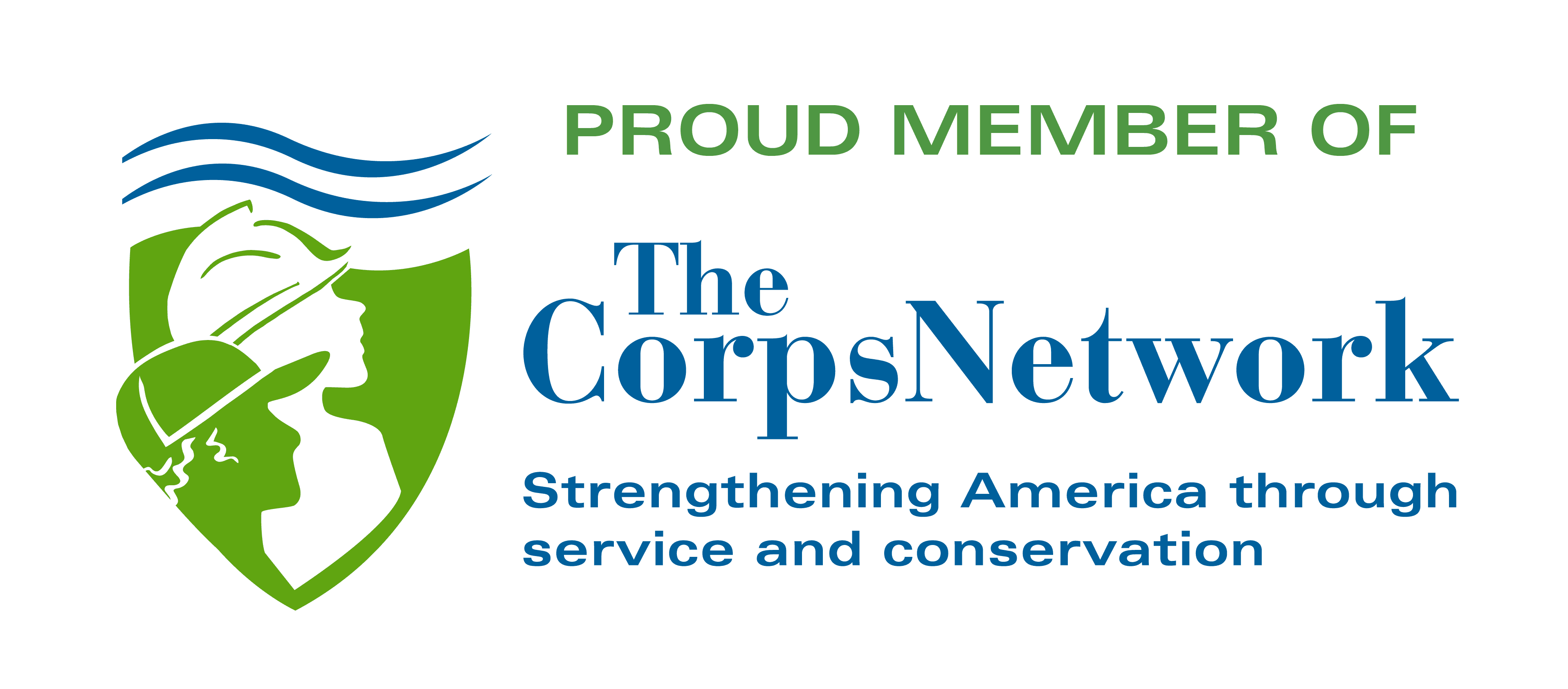Living the Life: The MCC Youth Crew Experience
Joining a Montana Conservation Corps (MCC) Youth Crew is more than just a summer job, it’s a chance to challenge yourself, grow personally and professionally, and form a tight-knit crew that lives, cooks, and works together. Get ready for an immersive, rewarding experience!
A Day in the Field
Every day follows a similar, structured routine designed for safety, productivity, and fun. You'll move together as a crew through:
- Daily Stretch & Safety Circle: Start the day right, focused on wellness.
- Group Meals: Cook and eat together—it’s a team effort!
- Project Work: Complete a variety of meaningful conservation projects.
- Skill Building: Our custom curriculum, Compass: Youth Edition, focuses on developing communication, team building, leadership, and professional skills throughout your time with MCC.
- Career Focus: Learn directly from project partners and agency staff about natural resource career pathways!
| Time | Activity |
|---|---|
| 6:00 AM | Rise and Shine! |
| 6:30 AM | Breakfast & Pack Lunches. Get gear ready for the workday. |
| 8:00 AM | Daily Stretch & Safety Circle |
| 8:30 AM | Project Work Begins! |
| 10:30 AM | Morning Break (15 minutes) |
| 12:30 PM | Lunch with a View (30 minutes) |
| 2:30 PM | Afternoon Break (15 minutes) |
| 4:30 PM | Wrap Up work and travel back to camp. |
| 6:00 PM | The Crew preps Dinner, Eats, and Clean Ups (1 hour) |
| 7:30 PM | Evening Activities (Games, Compass lessons, campfire, crew bonding, etc.) |
| 9:00 PM | Evening Routine (Tidy camp, brush teeth, lock up all "smellies"), then Bed! |
Below are some examples of what you could be doing in the field!
Want to learn more about specific expedition crew projects? Check out these projects from previous years to get a sense of the great service that has been accomplished by our crews!
Physical Demands: Be Ready to Work!
MCC projects are physically demanding—but they offer a clear sense of accomplishment. Your safety is our top priority, which means you need to be mindful of your wellness. Here’s what to expect:
- Repetitive Motion: Expect to swing tools (like pulaskis) for digging or use loppers for clearing brush. This builds new muscles but can lead to aches if you overdo it.
- Heavy Lifting: You’ll be carrying lumber, large rocks, and hauling heavy coolers and bins loaded with 10 days' worth of food and gear. Use proper form and know your limits!
- Extended Hiking with Weight: Projects can be remote, requiring you to hike long distances while carrying your day pack and gear. Be prepared for miles on the trail.
- High Altitude Work: Many projects are at elevation. Thinner air combined with physical activity can make breathing difficult, especially for those with asthma. Be aware of your condition and ability.
- All Weather Conditions: Expect rain, snow, extreme temperatures, and even wildfire smoke. Adequate gear and a positive attitude are non-negotiable for success.
- Remote Hygiene: You may be in remote locations for up to two weeks without access to electricity, toilets, or showers. "Bathing" will be very different from home—get ready for minimal water use!
Our Curriculum: Compass and the Four P's
At MCC, we believe that when we meaningfully connect to a sense of place, to other people, to a sense of personal power, and to pathways into the future, we connect to a sense of purpose. These 4 Ps (place, people, power, and pathways) provide the foundation for our field curriculum.
We’ll cover a variety of lessons focused on outdoor education, technical skills, leadership, and communication. Our workbook, Compass: Youth Edition, will be your place to work through and document it all: capturing your own learnings, takeaways, and goals.

More Resources:
Eager to get started? Check out our Youth Code of Conduct and our cheat sheet on conservation and field work language.

![[Image Description: Eight MCC members standing together on a trail wearing their uniforms and helmets, holding shovels and pulaskis. Five of the members are youth, standing alongside their expedition leaders.]](https://cdn.firespring.com/images/dec0992b-2f60-41f8-8bd6-06dcabf9c935.jpg)
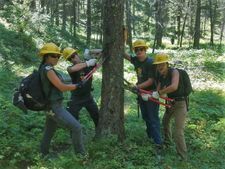
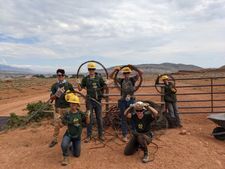
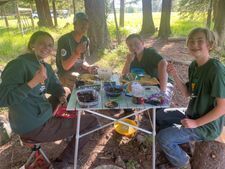
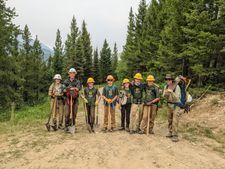
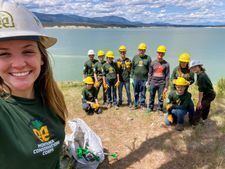
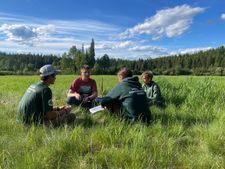
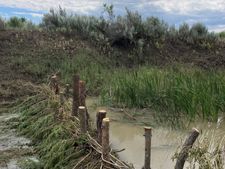
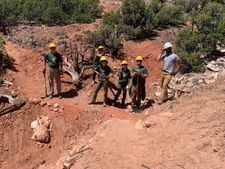
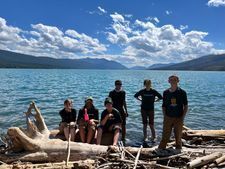
![[Image Description: Six MCC Members walking away from the camera, and into a forest with a beautiful blue lake in sight.]](https://cdn.firespring.com/images/25cee9f7-6ca6-4e4d-a70a-5cb32d51f266.jpg)
![[Image Description: Two crew members holding loppers, standing near a creek with cattails and natural grasses.]](https://cdn.firespring.com/images/de0a772d-039f-4dd6-9553-40d6a7543abf.jpg)
![[Image Description: Six MCC Youth members holding barbed wire loops that they used to install fencing. All members are wearing hard hats, wearing large welding gloves, and smiling.]](https://cdn.firespring.com/images/c8c72104-0de9-4f3c-b692-dbbcdb7fc755.jpg)
![[Image Description: An MCC youth member standing on the edge of a rocky mountain, staring into the golden valley far below them. Blue mountains paint the edge of the the image, and white clouds pepper the sky above them.]](https://cdn.firespring.com/images/9e859302-0ec3-47ef-b062-95627c2933d6.jpg)
![[Image Description: Two MCC Youth members are seen on the side of a small paved trail, hoisting up a fallen log, sporting hard hats, high visibility vests, and glasses.]](https://cdn.firespring.com/images/75f544da-e5b7-4aaa-ae46-8dca9b31599c.jpg)
![[Image Description: Three MCC youth crew members are sitting in a yellow raft, wearing PFDs, holding paddles and squinting in the sunshine on a river in Montana.]](https://cdn.firespring.com/images/24ecb8ac-ffb4-4d21-b079-eaaed95f394e.jpg)
![[Image Description: Two Youth Crew MCC members are shown holding what appears to be a large mound of tree trunk, standing in the middle of a forest.]](https://cdn.firespring.com/images/5394fcad-dd7c-4cb7-a059-e494d740eb41.jpg)




